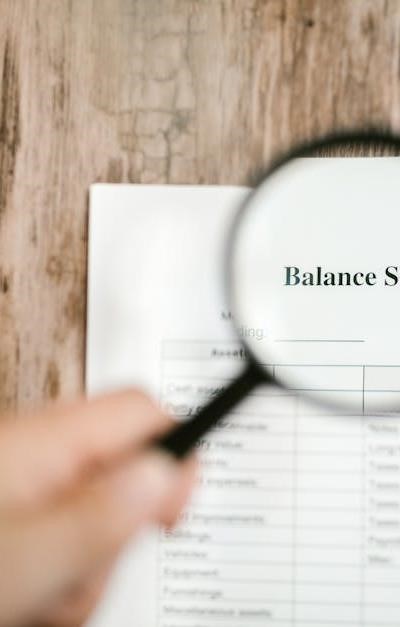
Navigating the world of credit card security requires understanding your cardholder protection rights. This guide details fraud protection measures, covering credit card fraud scenarios and your consumer rights.
We’ll explore secure transactions, online fraud prevention, and what to do in cases of identity theft. Knowing the dispute process and chargeback options is crucial for your financial security.
From zero liability policies to liability limits, we’ll clarify your protections against unauthorized charges, including issues like skimming and phishing.
Understanding Your Rights & Protections
As a cardholder, you possess significant cardholder protection under both federal law and your card issuer’s policies. The Fair Credit Billing Act (FCBA) is a cornerstone of consumer rights, providing recourse for billing errors, including unauthorized charges. Understanding these rights is paramount to your financial security.
Most major credit card networks – Visa, Mastercard, American Express, and Discover – offer zero liability policies. This means you generally won’t be held responsible for credit card fraud resulting from lost, stolen, or compromised cards, provided you report fraud promptly. However, specific terms and conditions apply, so reviewing your card agreement is essential.
Purchase protection often extends beyond simple fraud, covering damage or theft of items purchased with your card for a limited time. Many cards also offer extended warranty benefits. These features enhance your overall liability waiver against unforeseen circumstances.
Crucially, your rights are strengthened when dealing with secure transactions. Merchants are obligated to protect your card data, and breaches can trigger significant liability limits for them, not you. Be aware of your rights regarding online fraud and the protections offered for transactions made through reputable platforms.
Furthermore, understanding the dispute process is vital. If you identify an unauthorized charge, initiating a chargeback request through your issuer is a key step in reclaiming your funds. Document everything, and be prepared to provide supporting evidence. Your proactive engagement is crucial for successful resolution.
Recognizing and Preventing Common Credit Card Frauds
Protecting your credit card security begins with recognizing common fraud tactics. Phishing scams, often delivered via email or text, attempt to steal your information by impersonating legitimate institutions. Always verify sender authenticity before clicking links or providing personal details – a cornerstone of fraud protection.
Skimming, the illicit copying of card data, frequently occurs at ATMs and point-of-sale terminals. Inspect devices for tampering before use, and opt for chip-enabled transactions whenever possible. Be vigilant in public spaces and report any suspicious activity.
Online fraud is increasingly prevalent. Use strong, unique passwords for online accounts, and avoid using public Wi-Fi for sensitive transactions. Look for “https” in the website address and a padlock icon, indicating a secure transaction. Regularly monitor your statements for unauthorized charges.
Data breaches at retailers can expose your card information. While not directly your fault, staying informed about breaches and promptly reporting fraud to your issuer is crucial. Consider using virtual card numbers for online purchases to limit exposure.
Be wary of unsolicited offers and “too good to be true” deals, as these can be bait for fraudulent schemes. Regularly review your credit report for any signs of identity theft. Proactive monitoring and a healthy dose of skepticism are your best defenses against credit card fraud and maintaining your financial security. Remember, card replacement is a simple step if you suspect compromise.
Responding to Fraudulent Activity: The Dispute Process
If you suspect unauthorized charges or credit card fraud, immediate action is vital for maximizing your cardholder protection. First, contact your card issuer immediately to report fraud. Most issuers have 24/7 fraud hotlines. Document the date and time of your call, along with the representative’s name.
Next, initiate the dispute process. Your issuer will likely require a written statement detailing the fraudulent charges, including the date, amount, and circumstances. Gather any supporting documentation, such as copies of receipts or correspondence with the merchant.
Understand your rights regarding a chargeback. The Fair Credit Billing Act allows you to dispute billing errors, including fraudulent charges. Issuers typically investigate within two billing cycles. During the investigation, you are generally not responsible for paying the disputed amount.
Familiarize yourself with your issuer’s specific policies. Many offer zero liability protection, meaning you won’t be held responsible for unauthorized charges. However, timely reporting fraud is usually a condition of this protection. A liability waiver may apply in certain situations.
Consider filing a police report, especially if identity theft is suspected. This provides additional documentation for your dispute. Regularly monitor your credit report for any further suspicious activity. Knowing the dispute process empowers you to protect your financial security and exercise your consumer rights. Prompt action is key to a successful resolution and maintaining purchase protection.
Taking Proactive Steps & Account Security
Liability Limits and Your Card Issuer’s Policies
Understanding liability limits is crucial for credit card security. Federal law, specifically the Truth in Lending Act, outlines maximum cardholder protection against unauthorized charges. Generally, your maximum liability is capped at $50 if you report the loss or theft of your card promptly.
However, most major card issuers offer zero liability policies, effectively eliminating your financial responsibility for fraudulent transactions, provided you report them in a timely manner. This is a significant benefit of fraud protection. Review your cardholder agreement to confirm the specifics of your issuer’s policy.
Liability waivers may come into play in specific circumstances, such as gross negligence or intentional misuse of your card. For example, sharing your PIN with someone could void your zero liability protection. Be mindful of secure transactions and avoid risky behavior.
The timeframe for reporting fraud is critical. Delays can increase your potential liability. Familiarize yourself with your issuer’s deadlines for disputing charges and initiating a chargeback. Prompt action strengthens your position in the dispute process.
Card issuers also have policies regarding temporary holds on funds during investigations. These holds are typically lifted once the investigation is complete. Understanding these policies, alongside your consumer rights, is essential for maintaining your financial security. Always prioritize credit card security and be aware of potential risks like phishing and data breach scenarios. Knowing your issuer’s stance on purchase protection is also vital.




This is a really well-structured and informative guide! I particularly appreciate the emphasis on *prompt* reporting of fraud – that